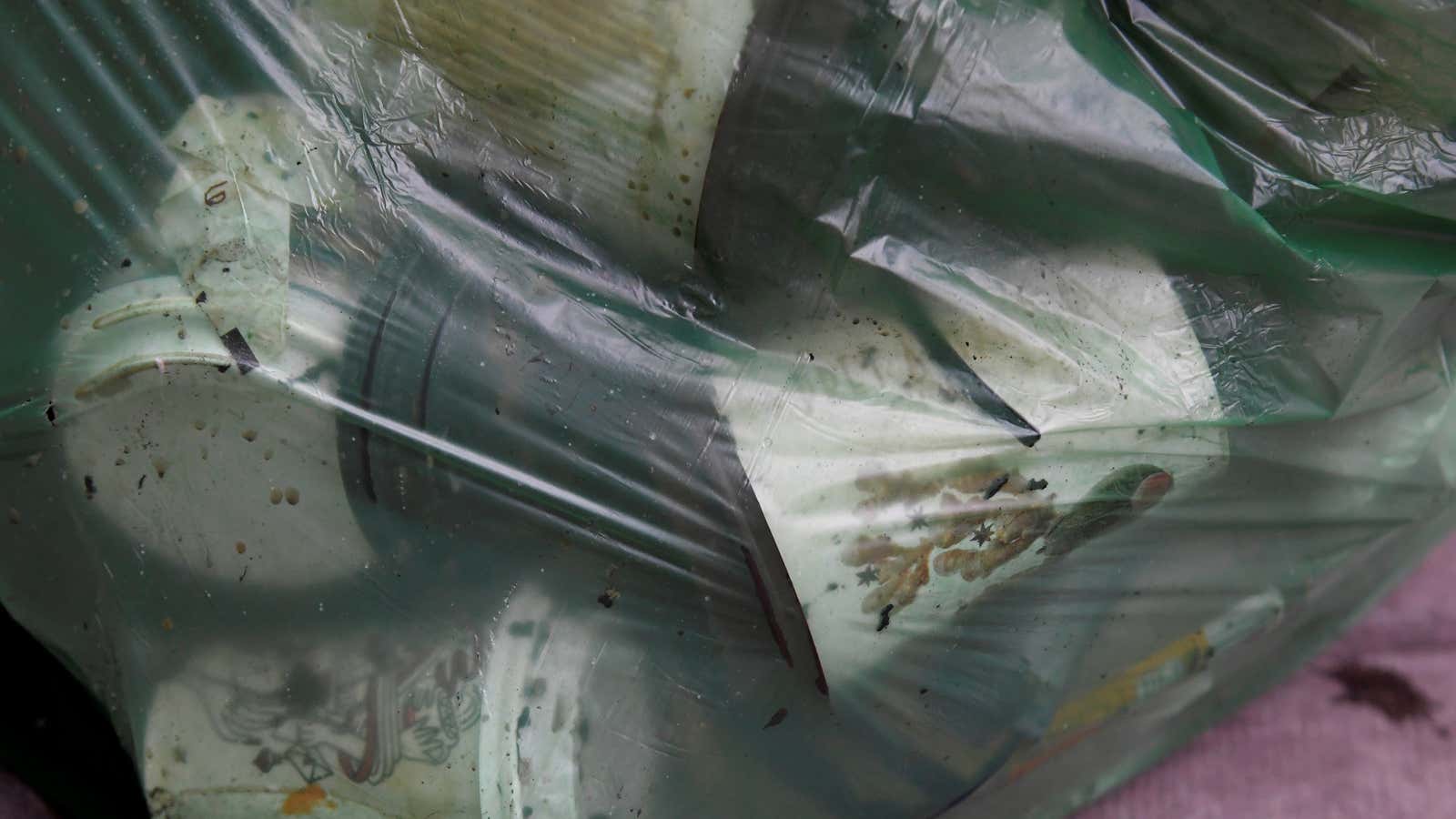Since the start of the century, the number of coffee shops has risen four-fold in the UK, takeaway coffees have become more and more readily available in supermarkets and gas stations, and now an estimated 2.5 billion coffee cups are thrown away each year. While these cups are technically recyclable, just 0.25% are actually recycled.
For the most part, this isn’t because Brits are malicious litterers. It’s because there’s confusion about how to recycle coffee cups. They have a plastic lining to seal the inside of the cups so they can hold liquid, which means the cups have to be sent to special facilities where the plastic and paper can be separated. But there are only three of these facilities in the UK. So instead, most coffee cups end up mixed in with other recycling in street bins and offices, contaminating the rest of the recyclable waste.
Some coffee shops in the UK offer incentives for customers to use reusable cups, often £0.25 (though this week Pret a Manger doubled their offering to £0.50). But a recent government report found that just 1%-2% of coffees sold in the country come with this discount option, and overall takeup of the incentive has been minimal. It’s time to put away the carrot and take out the stick.
In an effort to reduce waste, pollution, and meet United Nations sustainability goals, a group of policymakers in the UK are calling for a new charge on the use of coffee cups (pdf), proposing a minimum £0.25 ($0.34) levy on the disposable cups, dubbed the “latte levy.” The parliament members in the Environmental Audit Committee also recommended the government set a 2023 target of having the UK recycle all single-use coffee cups. If this target isn’t met, then disposable coffee cups should be completely banned.
Last year, behavioral economist Richard Thaler won the Nobel prize for his work explaining why humans don’t always make rational decisions in their best interests. His influential book, Nudge: Improving Decisions about Health, Wealth and Happiness, written with Harvard legal scholar Cass Sunstein, led to governments around the world implementing policies to “nudge” their citizens into making better decisions, while maintaining the freedom of choice, but making the bad decision harder to choose. The idea was wholeheartedly taken up in the UK, which set up a nudge unit called the Behavioural Insights Team, within the government that successfully got more people to save for retirement and pay their taxes on time.
There are two theories from behavioral economics and psychology that explain why the so-called “latte levy” should be more effective than current incentives: loss aversion and anchoring.
The theory of loss aversion is that people experience the negative feeling of a loss twice as strongly than they feel the positive sense of a gain, even if it’s the same size. In other words, most people will experience a £0.25 levy on a disposable cup as a much larger loss than the gain of a £0.25 discount for bringing in a reusable cup. In addition, the tax feels even more powerful because of the concept of “anchoring.” We are “anchored” to whatever price we usually pay for our coffee, and if its raised because of a levy, people will work twice as hard to avoid the sense of loss from paying the tax than is gained from the discount. (In some cases only one loss aversion or anchoring apply, but when it comes to coffee cup behavior, the two theories work in concert.)
All this means that, in theory, customers will be more inclined to go out of their way to avoid paying the additional cost of the “latte levy” than they have been for the gain of the reusable-cup discount. The UK report cites a Eunomia Research and Consulting estimate that a charge on disposable cups should reduce usage by 30%.
The idea for the disposable coffee-cup tax was inspired by a £0.05 charge placed on plastic bags in the UK starting in 2015. In the first year, plastic-bag usage dropped more than 80%.
As Nudge states “people tend to be somewhat mindless, passive decision makers.” If you can frame a situation the right way—by tapping into the deep human desire to avoid losses—you can make big differences.
